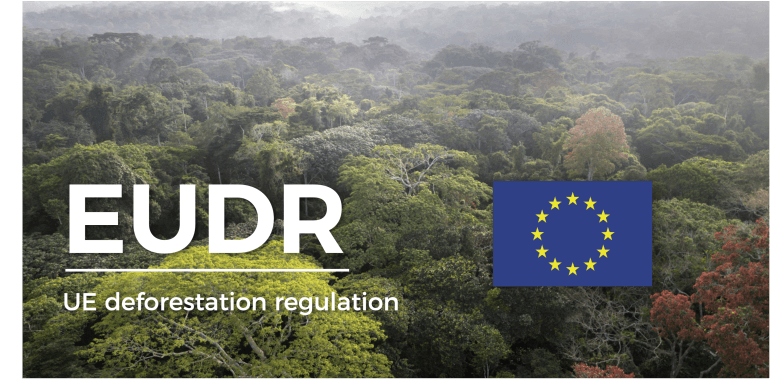

10.01.2025
Regulation (EU) 2024/3234, published on December 23, 2024, postpones the application of the zero-deforestation regulation by one year while introducing adjustments for certain businesses. In November, the European Commission published an updated FAQ and guidance document to clarify operators' obligations. LCB and ATIBT shared their interpretation of this FAQ to support companies in achieving compliance.

Application of the EUDR postponed to December 30, 2025, for all businesses
Regulation (EU) 2024/3234, published in the Official Journal of the European Union on December 23, 2024, amends Regulation (EU) 2023/1115, also known as the "zero-deforestation regulation." This text postpones the application dates of the obligations for operators and traders by one year.
Objective and context
Regulation (EU) 2023/1115 aims to ensure that certain products (such as wood, cocoa, coffee, soy, and palm oil) placed on the EU market comply with the legislation of the country of origin and meet zero-deforestation standards.
However, the complexity of compliance processes, particularly for companies operating across multiple international supply chains, led to the decision to postpone the application of these obligations.
Key dates
Country Risk Classification
A list of countries or regions classified as "low risk" or "high risk" will be published by June 30, 2025.
What This Means for Your Business
Operators and major traders should take advantage of this delay to:
For companies already compliant with the EUTR, this transition period ensures regulatory continuity while providing time to adapt their systems to the enhanced requirements of Regulation (EU) 2023/1115.
ATIBT and LCB analysis of the new questions in the Commission's FAQ
In November 2024, the European Commission published a guidance document and a third version of the FAQ on the zero-deforestation regulation, providing practical clarifications for operators and traders. These updates address key issues such as due diligence, the management of bulk and composite products, and the implications for subsidiaries and corporate groups. The document analyzes critical points using concrete examples and clarifies obligations related to traceability, product compliance, and applicable sanctions.
Topics Covered:
ATIBT offers a detailed overview of the obligations and measures to implement for EUDR compliance, focusing particularly on practical challenges and proposed solutions for companies in the timber trade.